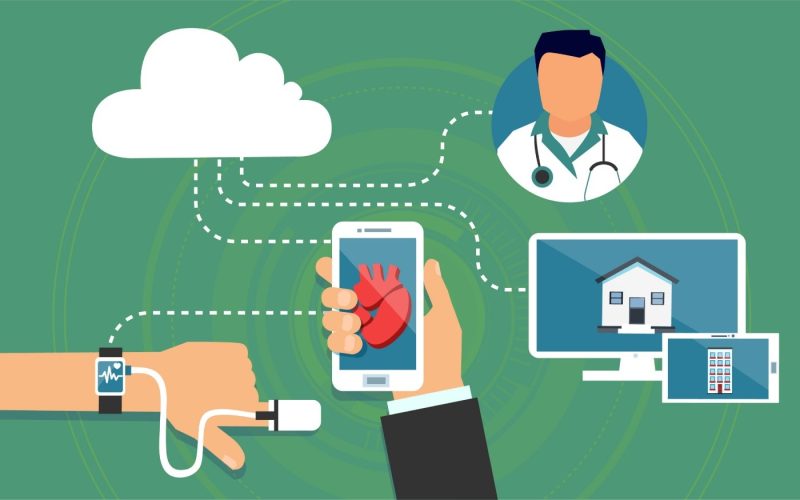The landscape of healthcare is undergoing a significant transformation, driven by the rapid advancement of technology. One of the most promising developments in this arena is Digital Therapeutics (DTx). These innovative solutions are not only revolutionizing the way we manage chronic diseases but also enhancing the overall quality of life for millions of patients worldwide. This article delves into the growth of digital therapeutics, exploring their potential, benefits, and the challenges that lie ahead.
What Are Digital Therapeutics?
Digital Therapeutics (DTx) are evidence-based therapeutic interventions driven by high-quality software programs to prevent, manage, or treat medical conditions. Unlike traditional therapies, which often rely on pharmaceuticals or physical interventions, DTx leverage digital technology to deliver personalized care. These interventions can be delivered through various platforms, including mobile apps, wearable devices, and online programs, making them accessible and convenient for patients.
The Rising Need for Digital Therapeutics
Chronic diseases, such as diabetes, cardiovascular diseases, and mental health disorders, are among the leading causes of death and disability worldwide. According to the World Health Organization (WHO), chronic diseases account for approximately 71% of all deaths globally. The management of these conditions often requires continuous monitoring, lifestyle changes, and medication adherence, which can be challenging for patients.
Digital Therapeutics offer a promising solution to these challenges by providing patients with tools to manage their conditions more effectively. For instance, a diabetes management app can help patients track their blood sugar levels, receive reminders to take their medication, and access educational resources to make informed lifestyle choices. Similarly, digital mental health programs can offer cognitive-behavioral therapy (CBT) and other interventions to help individuals manage anxiety and depression.

Benefits of Digital Therapeutics
Personalized Care:
One of the most significant advantages of DTx is the ability to provide personalized care. By leveraging data analytics and artificial intelligence (AI), these digital tools can tailor interventions to meet the unique needs of each patient. This personalized approach can lead to better health outcomes and improved patient satisfaction.
Accessibility and Convenience:
Digital Therapeutics can be accessed anytime and anywhere, making it easier for patients to integrate them into their daily lives. This accessibility is particularly beneficial for individuals living in remote areas or those with mobility issues who may have difficulty accessing traditional healthcare services.
Enhanced Patient Engagement:
Engaging patients in their care is crucial for the successful management of chronic diseases. DTx solutions often include interactive features, such as gamification, social support networks, and real-time feedback, which can motivate patients to stay committed to their treatment plans.
Cost-Effectiveness:
Managing chronic diseases can be expensive, both for patients and healthcare systems. Digital Therapeutics have the potential to reduce costs by minimizing the need for hospital visits, reducing complications, and improving medication adherence. This cost-effectiveness can make healthcare more sustainable in the long run.
Data-Driven Insights:
Digital Therapeutics generate a wealth of data that can be used to gain insights into patient behavior, treatment efficacy, and disease progression. Healthcare providers can leverage this data to make informed decisions, optimize treatment plans, and conduct research to advance medical knowledge.

Examples of Digital Therapeutics in Action
Several digital therapeutics have already made a significant impact in managing chronic diseases. Here are a few notable examples:
Omada Health:
Omada Health offers a digital program for diabetes prevention that combines personalized coaching, interactive lessons, and connected devices to help individuals make sustainable lifestyle changes. Clinical studies have shown that participants in the Omada program achieve significant weight loss and improvements in blood sugar levels.
Pear Therapeutics:
Pear Therapeutics has developed several FDA-approved digital therapeutics, including reSET and reSET-O, which are designed to treat substance use disorders. These programs provide cognitive-behavioral therapy through a mobile app, helping patients reduce substance use and improve treatment retention.
Big Health:
Big Health offers digital therapeutics for mental health, including Sleepio for insomnia and Daylight for anxiety. These programs use evidence-based techniques, such as CBT, to help individuals improve their sleep and manage anxiety symptoms.
Challenges and Future Directions
While the growth of digital therapeutics is promising, several challenges must be addressed to fully realize their potential.
Regulatory and Reimbursement Issues:
The regulatory landscape for digital therapeutics is still evolving, with varying requirements across different countries. Ensuring that DTx solutions meet rigorous standards for safety and efficacy is essential for gaining regulatory approval and reimbursement from healthcare payers.
Data Privacy and Security:
The collection and use of patient data raise important concerns about privacy and security. Developers of digital therapeutics must implement robust measures to protect patient information and comply with data protection regulations.
Integration with Healthcare Systems:
For digital therapeutics to be effective, they must be seamlessly integrated into existing healthcare systems. This integration requires collaboration between technology developers, healthcare providers, and policymakers to ensure that DTx solutions complement traditional care models.
Patient and Provider Adoption:
The success of digital therapeutics depends on the willingness of patients and healthcare providers to adopt these new technologies. Education and training are essential to build trust and confidence in DTx solutions.
Conclusion
The growth of digital therapeutics represents a significant advancement in the management of chronic diseases. By leveraging technology to deliver personalized, accessible, and cost-effective care, DTx has the potential to transform healthcare and improve the lives of millions of patients. As the field continues to evolve, addressing regulatory, privacy, and integration challenges will be crucial to unlocking the full potential of digital therapeutics and ensuring their widespread adoption.












